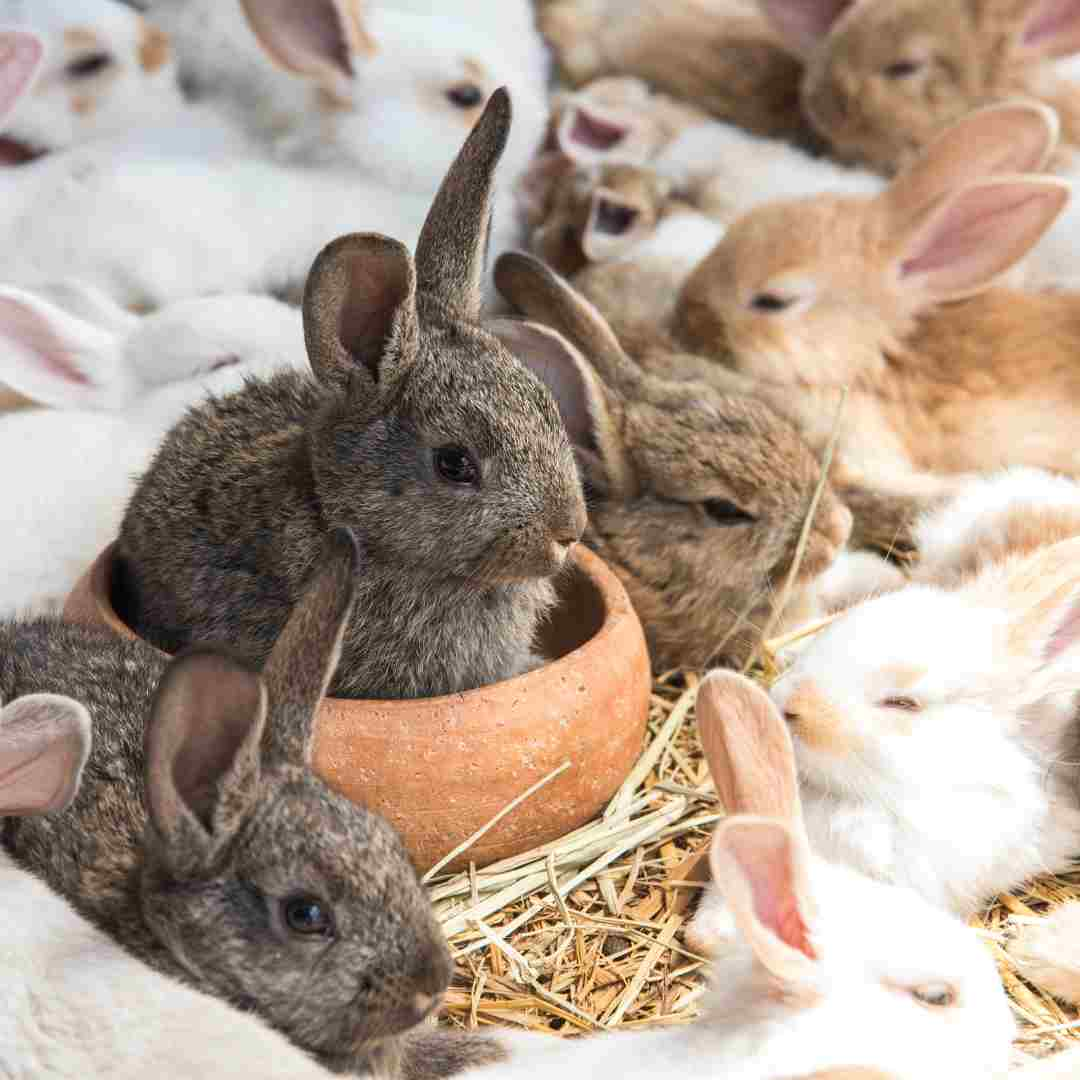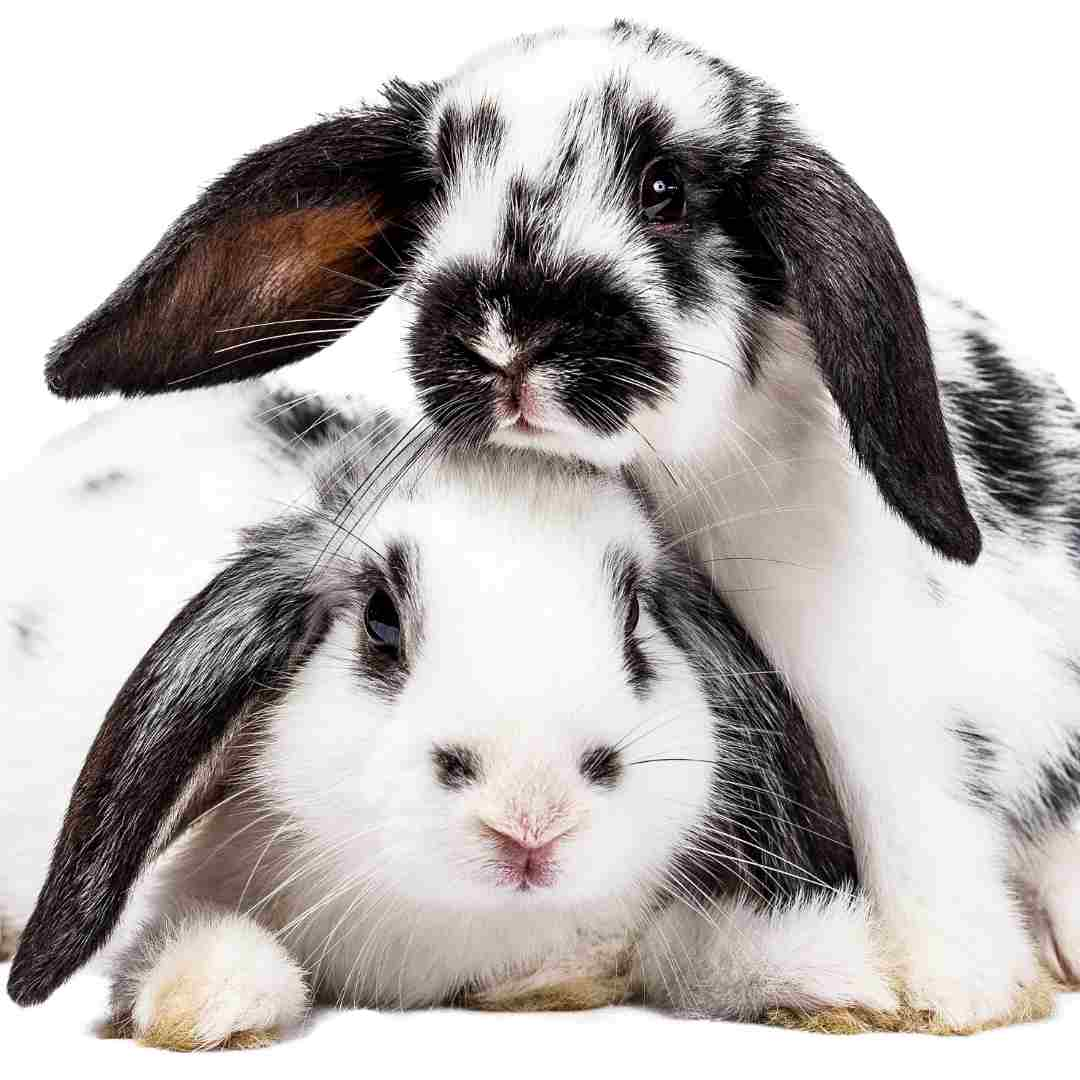Table of Contents
Overview
What Leads to Unhealthy Rabbit Cecotropes?
How to Spot Unhealthy Rabbit Cecotropes
How to Handle Unhealthy Rabbit Cecotropes
The Risks Associated with Diseased Cecotropes in Rabbits
How to Keep Rabbits from Developing Ill Cecotropes
Q&A
In summary
Overview
In rabbits, unhealthy cecotropes may indicate an underlying medical condition. Cecotropes are a particular kind of soft, foul-smelling, and frequently slimy rabbit faeces that are generated by the digestive system's cecum. These cecotropes are a vital component of a rabbit's diet since they aid in food digestion and provide vital nutrients. On the other hand, diseased cecotropes in rabbits may indicate an underlying medical condition that requires attention. This post will go over the symptoms of unhealthy cecotropes in rabbits, along with possible causes and solutions.
What Leads to Unhealthy Rabbit Cecotropes?
Numerous things might lead to unhealthy cecotropes in rabbits. These include of infections, gastrointestinal issues, and nutritional deficits.
Unhealthy cecotropes in rabbits can result from dietary deficits. A diet low in carbohydrates and high in fibre is necessary for rabbits. A rabbit may develop unhealthy cecotropes if it is not getting enough nourishment. A diet excessively rich in carbs may result in cecotropes that are sticky and mushy.
Unhealthy cecotropes in rabbits can also be caused by digestive issues. Malabsorption of nutrients can result from disruptions in the normal digestion process caused by gastrointestinal illnesses. Soft and sticky cecotropes may result from this.
Unhealthy cecotropes in rabbits can also be caused by infections. Nutrient malabsorption can result from gastrointestinal tract inflammation brought on by bacterial and fungal diseases. Soft and sticky cecotropes may result from this.
To make sure your rabbit is getting the right nutrients and that any potential health problems are taken care of, it's critical to keep an eye on their food and overall health. It's critical to get in touch with your veterinarian for additional assessment if you observe any changes in your rabbit's cecotropes.
How to Spot Unhealthy Rabbit Cecotropes
The appearance, texture, and smell of unhealthy cecotropes in rabbits can all be used as indicators.
Healthy cecotropes typically have a glossy sheen and a dark green colour. Cecotropes that are unhealthy may have duller colours, be lighter in colour, and have white or yellow dots on them.
Smell: The aroma of healthy cecotropes is musky and pleasant. The stench of unhealthy cecotropes may be nasty or sour.
Texture: Moist and soft cecotropes are signs of health. Cecotropes that are unhealthy may be lumpy, hard, or dry.
It's crucial to take your rabbit for a checkup at the vet if you observe any of these symptoms in their cecotropes. Unhealthy cecotropes may indicate an underlying medical condition, such as a digestive problem or infection.
How to Handle Unhealthy Rabbit Cecotropes
Rabbits create and eat a kind of soft, foul-smelling excrement called cecotropes. Due to the fact that they include vital nutrients and vitamins that are absent from regular droppings, they play a significant role in a rabbit's diet. Regretfully, unhealthy cecotropes may indicate a more serious medical problem. In order to maintain the general health and wellbeing of rabbits, it is imperative to treat unhealthy cecotropes.
Finding the root cause is the first step in treating sick cecotropes in rabbits. Stress, gastrointestinal problems, and nutritional inadequacies are common causes of unhealthy cecotropes. The rabbit should be fed a balanced diet consisting of hay, fresh veggies, and a minimal quantity of pellets if the cause is nutritional. The rabbit should be sent to a veterinarian for additional assessment and treatment if the cause is gastrointestinal.
Upon determining the root problem, it's critical to take action to enhance the rabbit's general health. This entails giving the rabbit a tidy, comfortable home, making sure it has access to food and fresh water, and giving it lots of opportunities for exercise and enrichment. Additionally, as stress can lead to unhealthy cecotropes, it's critical to lessen stress in the rabbit's surroundings.
Lastly, it's critical to keep an eye out for any changes in the rabbit's cecotropes. It's crucial to take the rabbit to the vet for additional assessment and care if the cecotropes don't improve. To help enhance the health of the rabbit, the veterinarian could suggest dietary adjustments, drugs, or other therapies.
These procedures can be used to cure diseased cecotropes in rabbits and maintain their general health and well-being.
The Risks Associated with Diseased Cecotropes in Rabbits
Because they are exceptional creatures, rabbits need particular attention and care. Cecotropes, the soft, moist, and foul-smelling droppings that the cecum produces, are among the most significant indicators of a rabbit's health. Because they include vital nutrients and microorganisms that aid in food digestion, these droppings are critical to a rabbit's health.
Regretfully, unhealthy cecotropes may indicate a more significant health problem in rabbits. Disease, stress, and bad diet are only a few of the causes of unhealthy cecotropes. An unhealthy cecotrope can cause a rabbit to have a range of health issues, such as weight loss, malabsorption, and even death.
A shift in the colour or consistency of the droppings is the most typical sign of diseased cecotropes. Cecotropes that are in good health typically have a silky, moist texture and a dark green or brown colour. There may be a health problem if the droppings are hard, dry, or a different colour.
In addition, altered behaviour, weight loss, and decreased hunger are indicators of harmful cecotropes. It is crucial to take a rabbit to the vet as soon as possible if it displays any of these signs.
It's crucial to feed rabbits a balanced diet that is low in sugar and high in fibre to avoid unhealthy cecotropes. It's also critical to give them access to lots of fresh water and a calm atmosphere. It's critical to get a rabbit to the doctor as soon as possible if it shows any symptoms of disease.
It's critical to take precautions against unhealthy cecotropes in rabbits as they may indicate a major health problem. A balanced diet, lots of fresh water, and a stress-free environment are all things owners can do to keep their rabbits healthy and happy.
How to Keep Rabbits from Developing Ill Cecotropes
Because they are exceptional creatures, rabbits need particular attention and care. A vital component of rabbit care is ensuring that the animal produces healthy cecotropes. Rabbits produce soft, pungent, grape-like droppings called cecotropes, which are vital to their health. Unhealthy cecotropes should be treated right away since they may indicate an underlying medical condition. The following advice can help shield rabbits against harmful cecotropes:
1. Offer a balanced food: A rabbit's health depends on having a balanced diet. A variety of fresh veggies, hay, and a small amount of pellets should be given to your rabbit. Treats should not be given to your rabbit in excess as this can cause an imbalance in their nutrition.
2. Make sure you're drinking enough water: A rabbit's health depends on it. Always make sure your rabbit has access to clean, fresh water.
3. Give your rabbit lots of exercise: Exercise is crucial to a rabbit's health. Make sure you give your bunny lots of room to run around and have fun.
4. Keep an eye on your rabbit's health: Keep a regular eye on your rabbit's health and keep an eye out for any symptoms of disease. See your veterinarian right away if you observe any changes in your rabbit's behaviour or cecotropes.
You can assist guarantee that your rabbit stays healthy and happy while producing healthy cecotropes by adhering to these guidelines.
Q&A
1. What exactly are inadequate cecotropes?
The mushy, foul-smelling, and frequently malformed droppings known as unhealthy cecotropes are generated by the digestive system's cecum.
2. Why do unhealthy cecotropes occur?
Stress, poor diet, digestive issues, and other causes can all contribute to unhealthy cecotropes.
3. What symptoms indicate that a cecotrope is unhealthy?
Unhealthy cecotropes can be identified by their soft, mushy texture, malformed droppings, and unpleasant smell.
4. What is the treatment for unhealthy cecotropes?
Treatments for unhealthy cecotropes include altering the rabbit's diet, lowering stress levels, and giving it digestive enzymes and probiotics.
5. How do harmful cecotropes affect a person over time?
Unhealthy cecotropes may cause weight loss, digestive problems, and malnutrition in the long run.
In summary
There are several reasons why rabbits may have unhealthy cecotropes, including as poor food, stress, and disease. It's critical to take your rabbit to the veterinarian for a checkup and to identify the underlying problem if they are generating harmful cecotropes. You can get your rabbit back to producing healthy cecotropes with the right feed and care.
